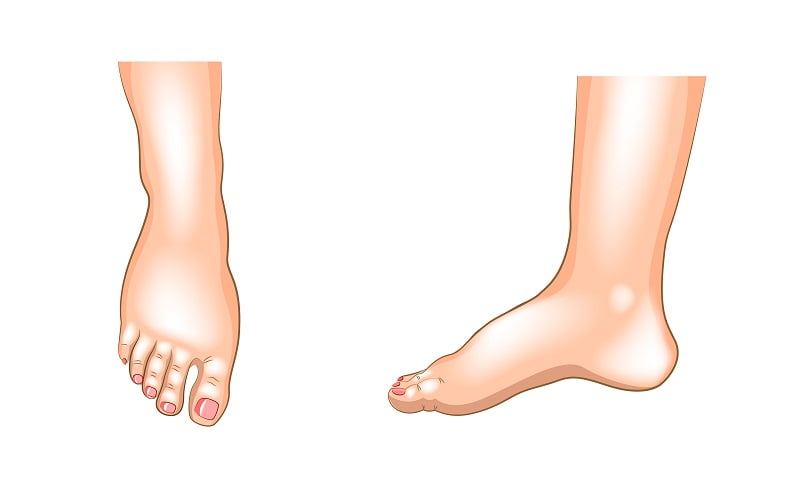Does COVID-19 Virus Spread From One Person to Another?
- Updated on: Nov 16, 2023
- 3 min Read
- Published on Mar 26, 2020

Since the novel coronavirus (COVID-19) began spreading throughout China in January, it has reached 177 countries and infected more than 311,000 people globally so far in third week of March 2020.
So far, 13,000 people have reportedly died from COVID-19. Considering COVID-19 as a public health crisis, the World Health Organization (WHO) has declared COVID-19 as global pandemic. Countries have taken drastic measures like travel restrictions, contemplating audienceless sport matches, cancelling all the public meetings, and lockdown in several cities where the COVID-19 is increasing at fast rates.
How Does COVID-19 Spread From one Person to Another?
COVID-19 spreads from person to person via respiratory droplets – little blobs of liquid released as someone coughs, sneezes, or talks. This is the primary route of transmission. Viruses contained in the droplets of body fluids such as saliva or mucus from an infected person can transmit to other people via the eyes, nose, or mouth.
The droplets (saliva, mucus) can directly come in contact with other people or can infect those who pick them by touching infected or contaminated surfaces and then their faces and eyes.
Since respiratory droplets are too heavy to remain suspended in the air, direct person to person transmission normally only happens when people come in contact with the infected persons- within about 6 feet of each other.
Transmission could also occur while doing medical setting, for example, if someone has to handle respiratory secretions such as saliva or mucus from an infected person. In this case, people who are mostly prone are nurses, ward boys and hospital cleaning staff members.
What Could be Done to Prevent COVID-19 Transmission from Person to Person?
Following preventive measures could be taken to avoid infection:
- Stay more than 1 meter (3 feet) away from a person who is sick (cough, sneezing or fever.
- Avoid public gatherings and maintain social distance as much as you can.
- Sick people should wear masks and should avoid contact with other people. They must avoid outside work.
According to a WHO report, the incubation period (time between catching the virus and beginning to have symptoms) of COVID-19 range from 1-14 days, most commonly around five days.
How Can Face Masks be Helpful in COVID-19 Prevention?
The masks can protect people and environment from the mask-wearer by trapping respiratory droplets emitted from the mouth or nose. The most commonly used masks are surgical masks, loose- fitting pieces of cloth that cover mouth and nose. These are most frequently used by doctors and dentists.
Masks provide protection against COVID-19 in another way by reducing a number of times person touches their face.
However, masks are generally recommended for people who have cough and sneezing or the persons who are taking care of COVID-19 infected people.
Since COVID-19 has spread at its outbreak, it is now suggested to wear masks when you are in crowded places.
While wearing masks person should ensure the following things:
- Face masks are effective only when used in combination with frequent hand-cleaning with alcohol-based sanitizers or soap and water.
- Avoid touching the mask while using it; if somehow you do it, then clean your hands immediately with alcohol-based hand sanitizers or soap and water.
- If you want to remove the mask, then remove it from behind, discard immediately in a closed bin and clean hands properly with alcohol based sanitizer/soap and water.
- Cover mouth and nose with mask properly and make sure there are no gaps between face and the mask.
Also Read:
FAQs
Can I catch COVID-19 From my pet?
At present, experts believe it is unlikely to get COVID-19 infection from pets. WHO has suggested that there is no evidence that dogs or cats can be infected with COVID-19. COVID-19 mainly spreads through droplets produced when an infected person coughs, sneezes, or speaks. Clean your hands frequently and thoroughly to protect from infection.
Is There a Vaccine, Drug or Treatment for COVID-19?
Presently, there is no vaccine and no specific antiviral medicine to prevent or treat COVID-2019. However, those affected can receive care to relieve symptoms. People with serious illness should be hospitalized soon so that they are cared well. Possible vaccines, specific drug treatments are under investigation and are being tested through clinical trials.
Should I Worry About COVID-19?
Illness leading to COVID-19 infection is usually mild, especially for children and young adults. However, it can cause serious illness: about 1 in every 5 persons who catch it needs proper hospital care. It is therefore very normal for people to worry about how the COVID-19 outbreak can affect them and their loved ones.












